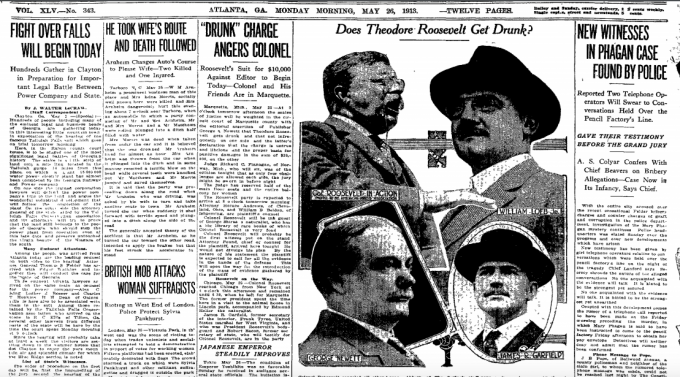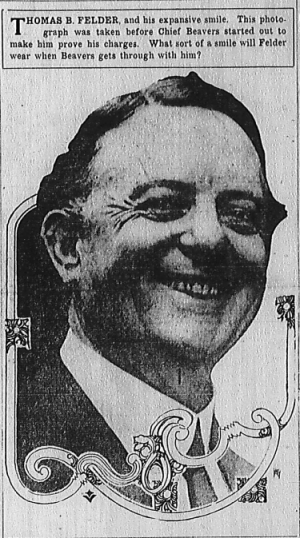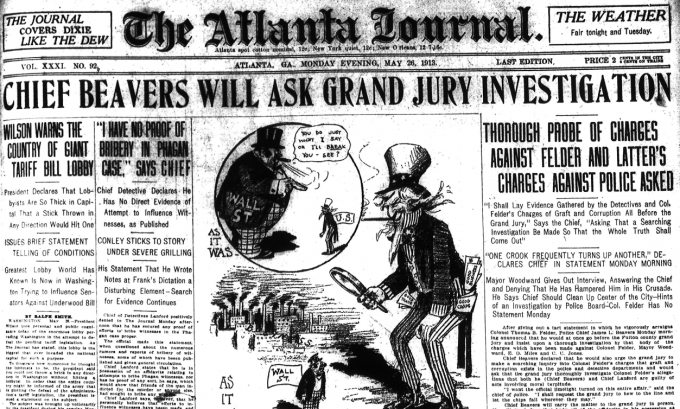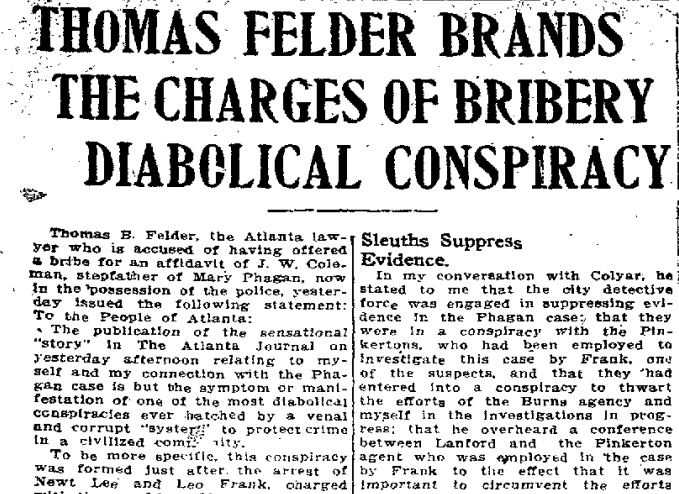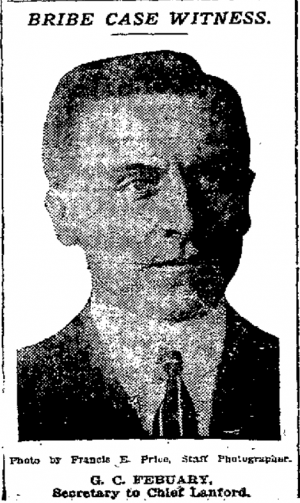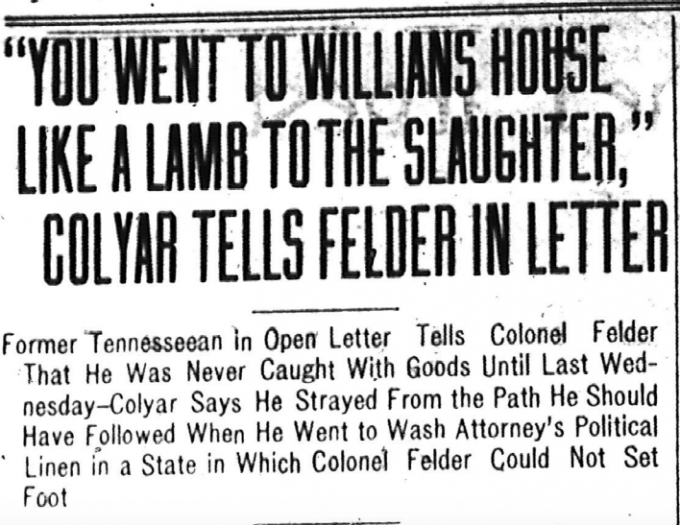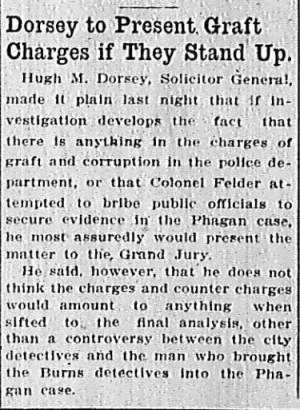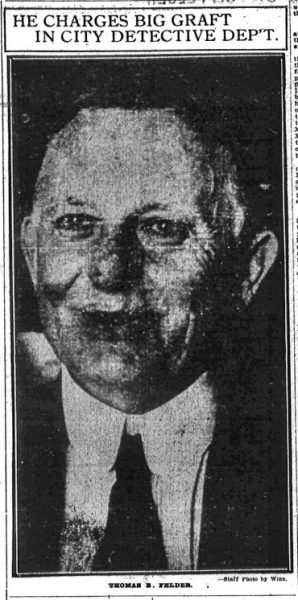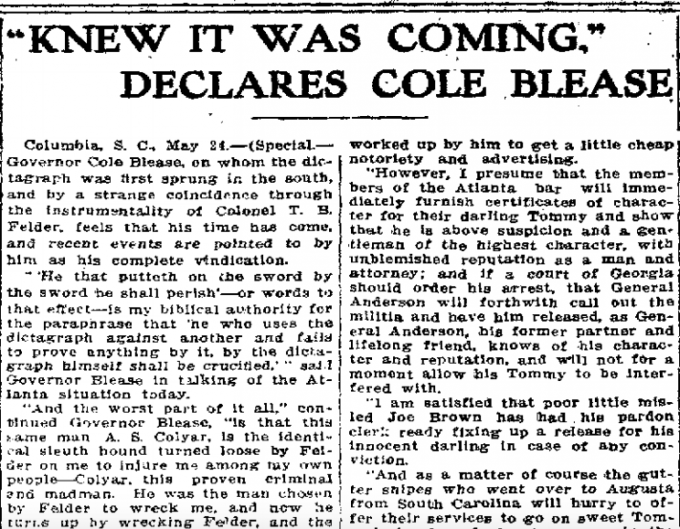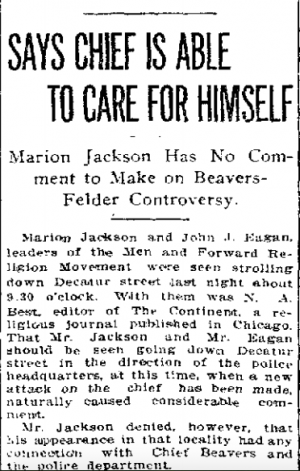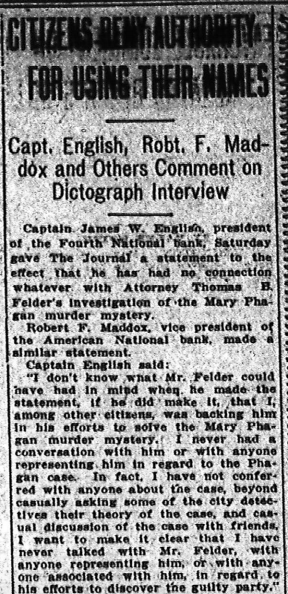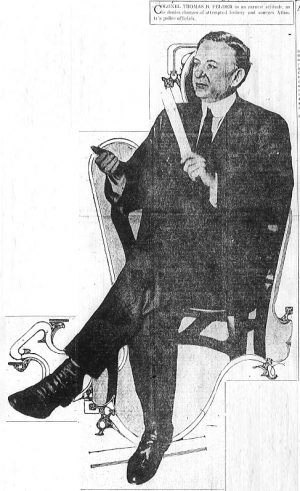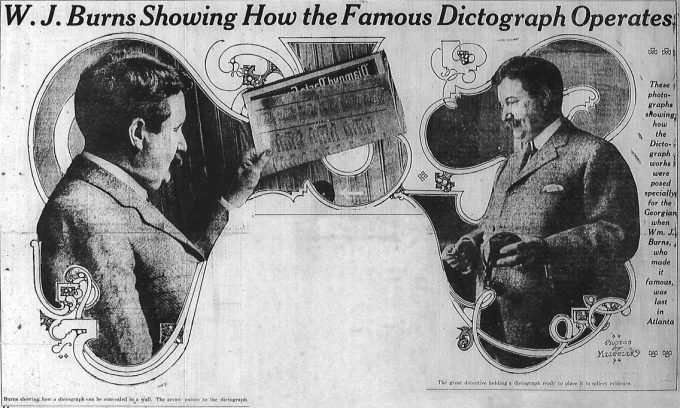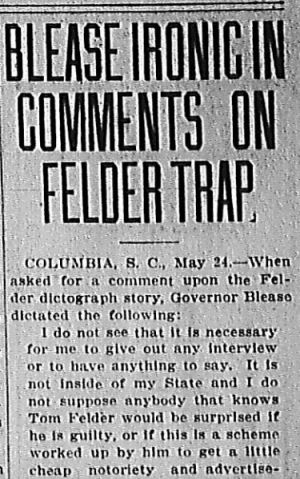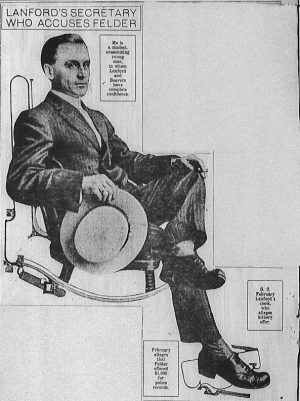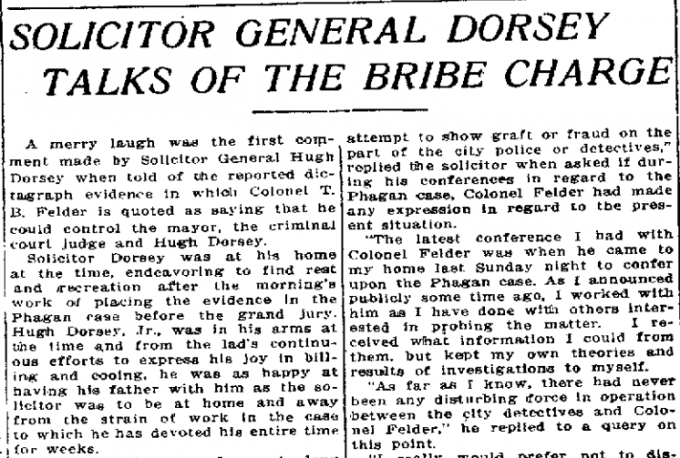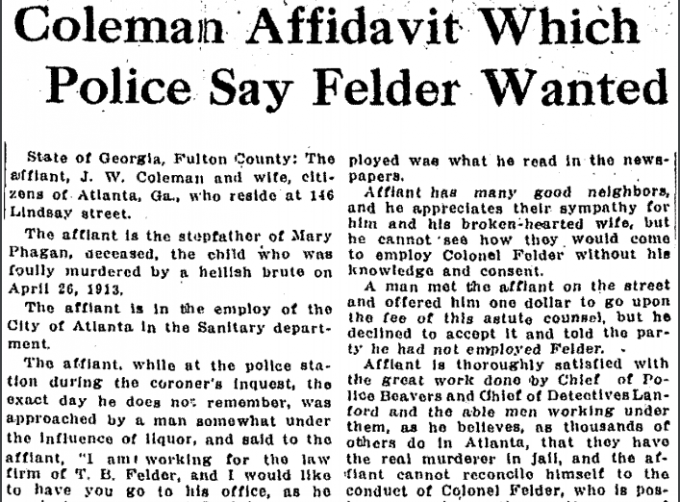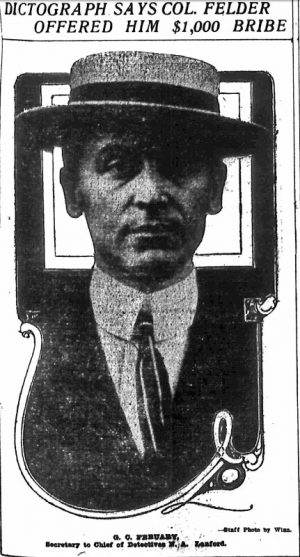Another in our series of new transcriptions of contemporary articles on the Leo Frank case.
Atlanta Constitution
Monday, May 26th, 1913
Reported Two Telephone Operators Will Swear to Conversations Held Over the Pencil Factory’s Line.
GAVE THEIR TESTIMONY BEFORE THE GRAND JURY
A. S. Colyar Confers With Chief Beavers on Bribery Allegations—Case Now in Its Infancy, Says Chief.
With the entire city aroused over the recent sensational Felder bribery charges and counter charges of graft and corruption in the police department, investigation of the Mary Phagan mystery continues. Police headquarters was elated Sunday over the progress and over new developments which have arisen.
New testimony has been given by girl telephone operators relative to conversations which were held over the pencil factory’s line on the night of the tragedy, Chief Lanford says. Secrecy shrouds the nature of the alleged conversations. No one acquainted with the evidence will talk. It is hinted to be the strongest yet secured.
No one acquainted with the evidence will talk. It is hinted to be the strongest yet unearthed.
Coupled with this development comes the rumor of a telephone call reported to have been made on the Friday morning preceding the murder, in which Mary Phagan is said to have been instructed to come to the pencil factory Friday afternoon to obtain her pay envelope. Detectives will neither deny nod [sic] admit that the rumor has been confirmed.
Phone Message to Pope.
J. B. Pope, of Bellwood avenue, a county policeman and neighbor of the slain girl, to whom the rumored telephone message was made, could not be reached last night by The Constitution. Mrs. Pope says she knows nothing of the report, but says numerous calls came to her home for Mary Phagan and members of her family. Continue Reading →

